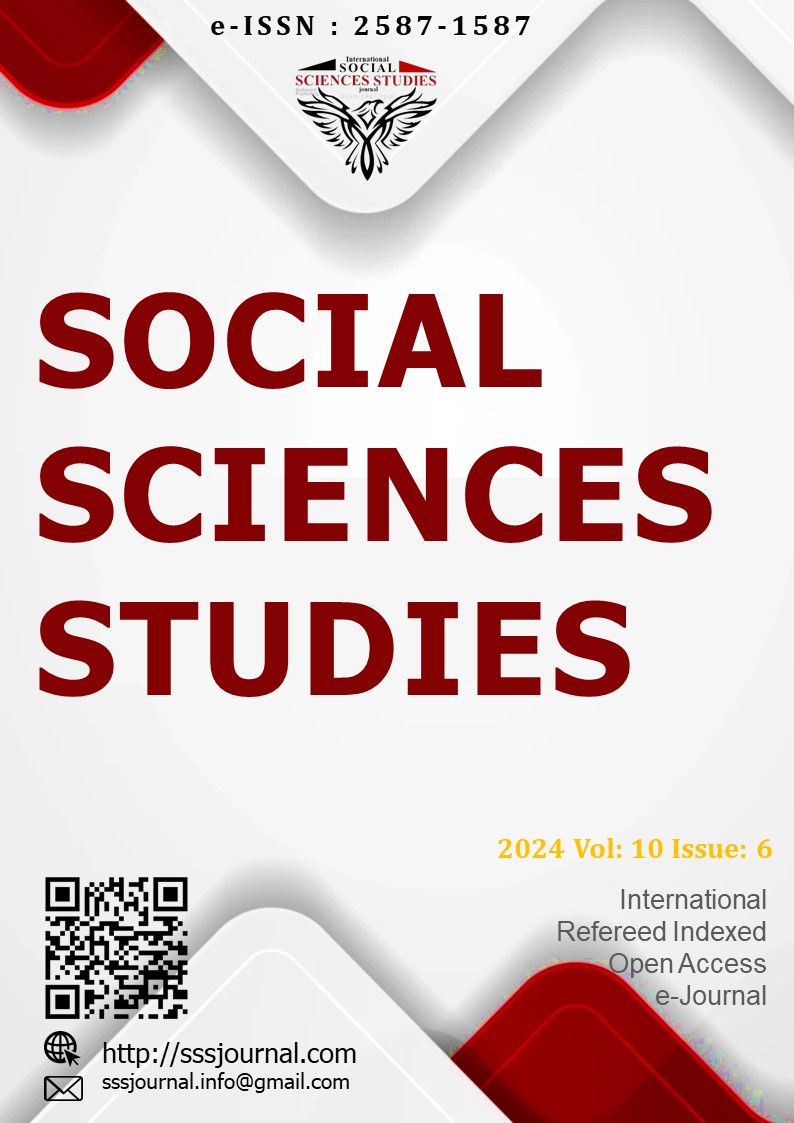Author :
Abstract
Geçmişe ait birikimi oluşturan kültürel mirasın korunması, insani bir sorumluluktur. Bu sorumluluk bilincine ulaşmak ise hem bilişsel hem de duyuşsal bir gelişimi gerektirmektedir. Okullarda kültürel mirasa duyarlı bireyler yetiştirmek için; kültürü öğretmek ve o kültürün bir parçası olduğu duygusunu kazandırmak amaçtır. 7.sınıfta sosyal bilgiler dersi içinde Osmanlı tarihi konuları ile bu amaca yönelim söz konusudur. Bu bağlamda Osmanlı tarihi öğretimi, kültürel mirasa duyarlı bireyler yetiştirmek için bir araçtır. Öğretmen ve öğretmen adaylarının öğretime ilişkin düşünsel imajları, amaca ulaşmak açısından sorgulanması gereken bir noktadır. Bu sebeple, araştırmada ‘Kültürel mirasa duyarlılık geliştirmede Osmanlı tarihi öğretiminin rolü’ sosyal bilgiler öğretmen adaylarının düşünceleri aracılığıyla incelenmiştir. Nitel araştırma yöntemlerinden durum çalışması deseniyle şekillenen çalışma, 2022-2023 eğitim-öğretim yılında Eğitim Fakültesi’nde okuyan 51 sosyal bilgiler öğretmen adayı ile gerçekleştirilmiştir. Araştırmacı tarafında geliştirilen yarı yapılandırılmış görüşme formu ile araştırma verileri toplanmıştır. Veriler, betimsel analiz ve kelime bulutu analizi yöntemleriyle çözümlenmiş ve yorumlanmıştır. Araştırma sonuçlarına göre; öğretmen adaylarının bakış açısından kültürel mirasa duyarlılık bağlamında Osmanlı tarihi öğretiminin ‘siyasi, ezber, sıkıcı’ yönleri amaçlara ulaşmanın önünde bir engel olarak görülmektedir. Bu önyargıları taşıyan öğretmenlerin, amaca tam odaklanması ve kazanımları hedefleyen dersler planlaması pek mümkün görünmemektedir.
Keywords
Abstract
|
Preserving the cultural heritage that constitutes the accumulation of the past is a human responsibility. Achieving this awareness of responsibility requires both cognitive and affective development. In order to raise individuals sensitive to cultural heritage in schools; The aim is to teach the culture and give the feeling of being a part of that culture. There is a tendency towards this goal with Ottoman history subjects in the social studies course in the 7th grade. In this context, teaching Ottoman history is a tool for raising individuals sensitive to cultural heritage. The intellectual images of teachers and teacher candidates regarding teaching are a point that must be questioned in order to achieve the goal. For this reason, in the research, 'The role of Ottoman history teaching in developing sensitivity to cultural heritage' was examined through the thoughts of social studies teacher candidates. The study, shaped by the case study pattern, one of the qualitative research methods, was conducted with 51 social studies teacher candidates studying at the Faculty of Education in the 2022-2023 academic year. Research data was collected with a semi-structured interview form developed by the researcher. The data was analyzed and interpreted using descriptive analysis and word cloud analysis methods. According to the research results; From the perspective of teacher candidates, the 'political, memorization and boring' aspects of teaching Ottoman history in the context of sensitivity to cultural heritage are seen as an obstacle to achieving the goals. It does not seem possible for teachers with these prejudices to fully focus on the goal and plan lessons targeting achievements. |





